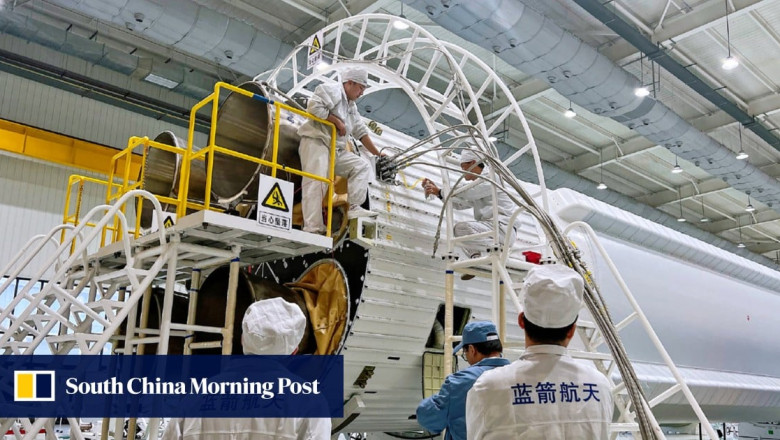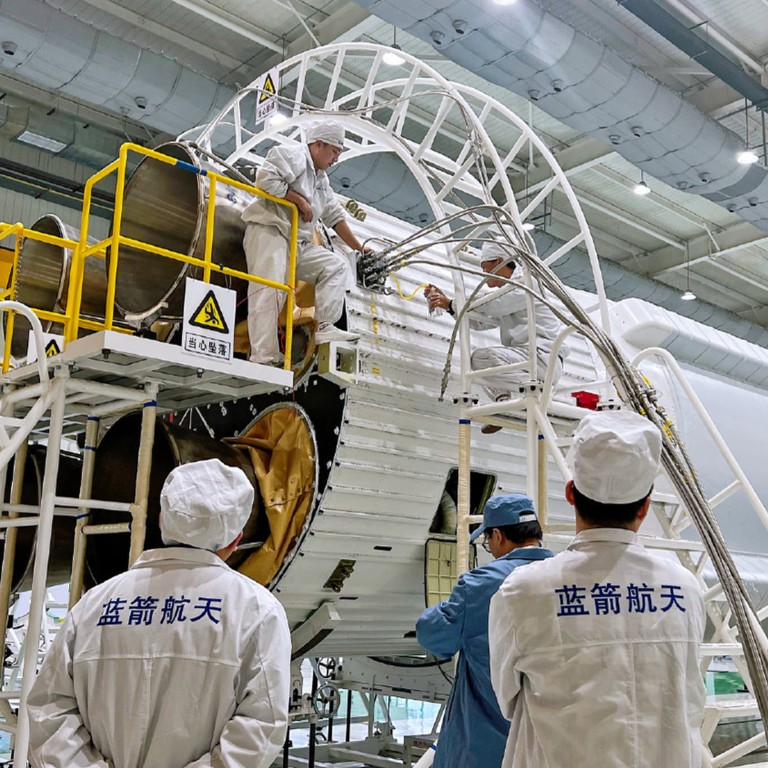
views

- SpaceX rival LandSpace says pressure testing went as expected, with no explosion or serious injuries to its employees
- A company employee said the test related to fuel tanks for an enhanced version of LandSpace’s world-beating Zhuque-2 methane-fuelled rocket
Three workers were injured and nearby residents reported that “a huge boom” shook their windows during testing of a LandSpace rocket fuel tank in Shanghai on Monday evening.The Chinese start-up – which last year beat its rivals, including US-based SpaceX, to launch Zhuque-2, the world’s first methane-fuelled rocket, into orbit – said there were no abnormalities during the test.
A LandSpace representative told local media on Tuesday that the test “left some glass damaged and three production personnel with minor scratches”. The company and the district government said no explosion occurred.
Residents in Yushu Road, near the test site in Songjiang district, quickly took to social media platform Weibo to share their experience, which occurred at around 7.30pm.
“My windows were shaking badly, and then there was the sound of fire trucks in the street,” one resident wrote. “It felt like an earthquake or enormous thunder to me,” said another.
01:27
China beats SpaceX with world’s first methane-powered rocket launch
China beats SpaceX with world’s first methane-powered rocket launch
According to a video posted on Weibo, the workers, who were all male, were treated for head and hand injuries at Songjiang Central Hospital.
The LandSpace representative said the test was under control and there was no abnormality in the process. “The propellant tank was ruptured at the pressure of 0.65 million pascals as expected,” he said.
Local media reported that the test took place at an outdoor facility rented by LandSpace, at the Shanghai Spaceflight Precision Machinery Institute – dubbed Institute 800.
The institute is under the China Aerospace Science and Technology Corporation, the main contractor for China’s space programme.
A LandSpace employee who asked not to be identified, as he is not authorised to speak to the media, said extremely low-temperature liquid nitrogen was used in the pressure test, which was designed to establish the tank’s limits.
“It’s very important to evaluate a tank’s ability to hold super-cold propellant before the actual launch happens,” he said.
01:58
SpaceX loses contact with Starship minutes after reaching space
SpaceX loses contact with Starship minutes after reaching space
Pressure tests are often used in rocket development to help researchers better understand a tank’s structural stability and tolerance. US-based SpaceX carried out similar testing for its Starship rocket a few years ago, the employee said.
In the SpaceX test, prototype tanks were filled with super-chilled liquid nitrogen until they reached their strength limit and eventually popped. “The burst will release a humongous amount of power, but it won’t burn or start a flame,” he said.
According to the employee, Monday’s test was for an enhanced model of the Zhuque-2, that will boost its current payload capacity.
LandSpace’s groundbreaking methane-liquid oxygen rocket can lift 4-6 tonnes into low Earth orbit and is a contender for space flight because it burns methane, a clean and abundant fuel.
The Beijing-based start-up is also working on the reusable, stainless steel Zhuque-3, which will have a larger diameter and lift-off mass than SpaceX’s workhorse Falcon 9 rocket. LandSpace has said Zhuque-3’s maiden flight is planned for 2025.
Earlier this month, the company completed a successful vertical take-off, vertical landing – or hop test – with a Zhuque-3 prototype at the Jiuquan satellite launch centre.
LandSpace has also built research bases and manufacturing centres across China. Its Shanghai centre focuses on research and development into propulsion systems for liquid-fuel rockets.
The company also has facilities in Beijing and Xian, as well as in Huzhou and Jiaxing, in the northern province of Zhejiang.




















Comments
0 comment